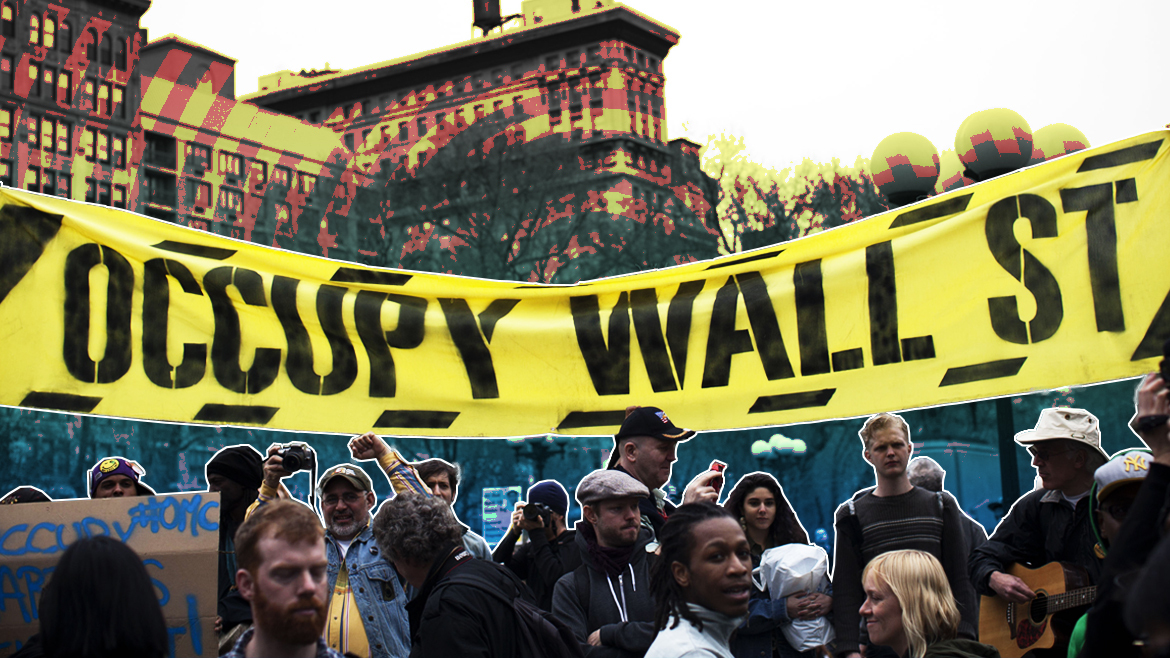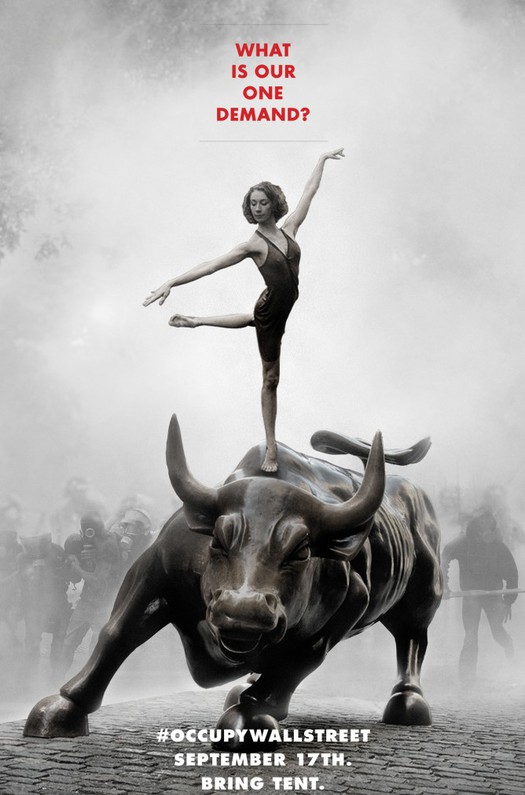
Today is the tenth anniversary of Occupy’s first Occupation, and retrospective memoirs and evaluations are everywhere. The argument here is that Occupy mattered, even though the movement got little or less of what activists demanded in 2011. You can start with yesterday’s entry on stalling President Obama’s move to the right and altering rhetoric.
There’s more:
Occupy didn’t organize into more mainstream politics, partly as a matter of ideology, partly a function of hyper-democratic horizontal organizational structures. There were no formal demands and no Occupy-endorsed candidates for office.
But Occupy demonstrated a widespread concern with political and economic inequality that provided the promise of a base for entrepreneurial allies in more mainstream politics.
After the last of the Occupations was cleared out, Charles Lenchner, a tech. strategist from Occupy, organized Ready for Warren, an appeal for Massachusetts’ newly elected Senator Elizabeth Warren, to run for the Democratic nomination for president–against Hillary Clinton. When Warren ruled out a run, Lenchner started People for Bernie, which shifted the ask to Vermont Senator Bernie Sanders, who took up the challenge and did far better than anyone anticipated. One effect of the campaign was to push Clinton to the left. Really.
For sure, Occupy didn’t recruit Warren and Sanders to progressive economic policies. Both had been in that camp for many years–way before many Occupiers were born. Warren tells the story of her conversion to progressive economics as a law professor in Texas studying bankruptcy–driven by the data. And Bernie was a progressive activist, as near as I can tell, since grade school. Certainly, he’s been giving the same speech–about fairness and gross inequality–since first running for office in the 1970s. Note: He updates the statistics–and, mostly, they’re getting worse.
But Occupy demonstrated a ready and potentially active constituency for the songs people like Sanders and Warren have been singing for decades. The drummers at Occupy added a beat, and the protests everywhere turned up the volume.
Occupy boosted a range of progressive campaigns, including the Fight for $15, Justice Democrats, and the Democratic Socialists of America. Some campaigns were already established, and took the boost; some started as the Occupy activists spilled out into related political projects.
The political shift came with a shift in the political agenda, and newly salient grievances, like tax justice and the student debt crisis. The issues were bigger and more visible even after Occupy seemed to evaporate (it didn’t; see tomorrow’s post).
Can you imagine Alexandria Ocasio-Cortez successfully challenging an incumbent liberal Democrat deep in the House leadership without Occupy? (I can’t.)
So, Occupy helped build a stronger progressive faction within the Democratic Party, both within and outside government.
The time-honored political survival strategy for politicians in America is to navigate toward the center of their political base, and no one was more committed to this approach–and more adept at it–than Joe Biden. When the center moved, so did he, advancing an agenda far more ambitious on economic justice and taxation than Barack Obama even hinted at. Biden only pushes a massive infrastructure plan which includes action on progressive taxation, childcare, preschool, and the environment because of Occupy’s influence.
So, the scorecard now includes a check next to agenda setting and another next to political coalitions.

There’s more to come.
----------------------------------------
By: David S. Meyer
Title: Occupy at 10 (2/x)
Sourced From: politicsoutdoors.com/2021/09/17/occupy-at-10-2-x/
Published Date: Fri, 17 Sep 2021 19:56:42 +0000
Did you miss our previous article...
https://consumernewsnetwork.com/politics-us/september-28th-playbook






